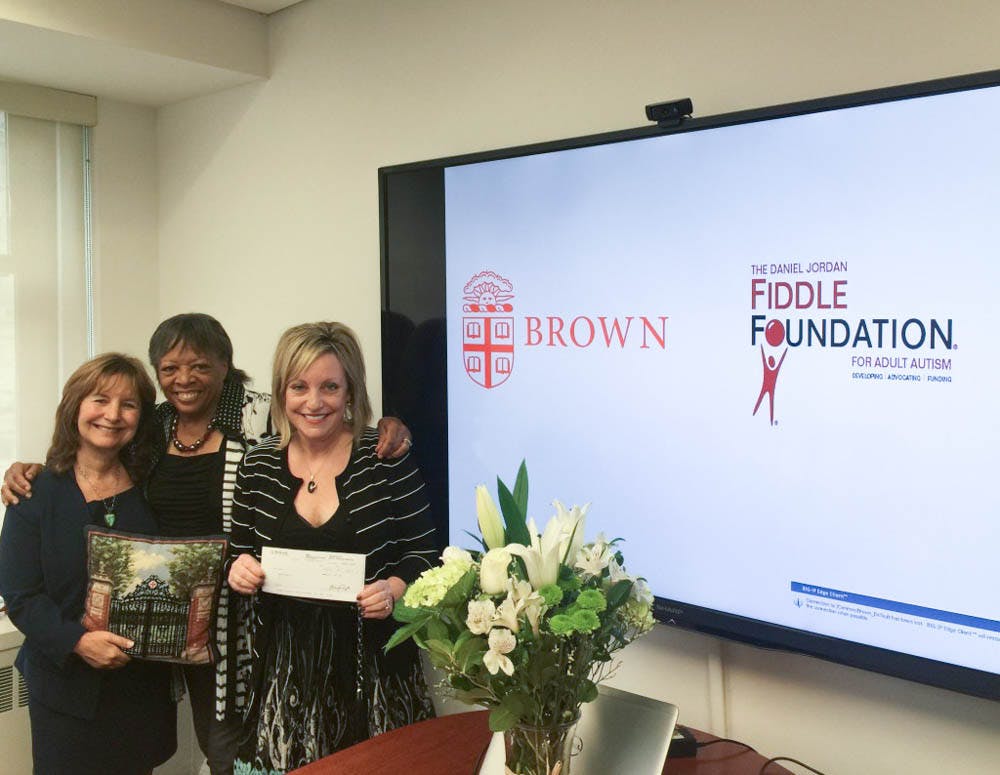The theater arts and performance studies department announced the creation of an endowment fund that aims to support theater and performance programs for adults diagnosed with autism. The fund, called The Daniel Jordan Fiddle Foundation Adult Autism Theater and Performing Arts Fund, was established through a $100,000 donation from the namesake organization that supports adults on the autism spectrum and raises awareness of their experiences.
Linda Walder, the founder of the organization, said she was inspired to create The Daniel Jordan Fiddle Foundation in 2002 to honor her late son’s life. “Eighteen years ago no one was talking about adults (with autism) or focusing on them at all. We thought there was a major deficit in that area” of providing service.
The DJFF creates “programs, services and support systems that … exclusively focus on adults” with autism, she added.
In an effort to realize its mission, The DJFF has established funds at a variety of universities throughout the country. “We thought, let’s go to the best universities in the United States, and, in perpetuity, create a focus on adult autism,” Walder said. The DJFF has existing funds at Yale, Rutgers and the University of Miami, each addressing different aspects of programming, research and development.
Brown’s partnership with the Miracle Project made it a viable candidate for an endowment fund from The DJFF, Walder said. The Miracle Project is a California-based initiative that aims to “provide individuals with autism and other disabilities the tools to build communication, social skills, community and greater self-esteem through inclusive theater and expressive arts programs,” according to its website.
The University’s partnership with the Miracle Project follows the work of Julie Strandberg, a senior lecturer in the TAPS department, and Rachel Balaban, an adjunct lecturer in the TAPS department, who created the Artists and Scientists as Partners program, The Herald previously reported.
The ASaP program developed a course that “advocates for research exploring diverse medical and arts practices” for individuals with Parkinson’s disease and Autism Spectrum Disorders, according to the program’s website.
The creation of the ASaP program reflects the University’s interdisciplinary “relationship between its students in the sciences and students in the arts,” said Patricia Ybarra, chair of the TAPS department. “There aren’t many centers in the (United States) that think about ASD and the arts together,” she added.
The DJFF Adult Autism Theater and Performing Arts Fund will help fund and grow the University’s relationship with the Miracle Project, Strandberg said. Eventually, she hopes to establish “a branch of (the Miracle Project) in New England.”
Walder said the collaboration between the University and The DJFF also develops “the blueprint … for (creating) an inclusive theatre program.”
The DJFF endowment fund helps facilitate greater interaction between the performance arts space at Brown and individuals on the autism spectrum, which has been a goal of the department and its students, said Leon Hilton, assistant professor in the TAPS department.
“There’s interest in having students, particularly those who are interested in … the engaged scholar aspect of our (TAPS) program, to work closely with people on the spectrum and to think about how theater, performance and dance can provide a unique way of working across lines of disability and difference,” Hilton said. Over time, the TAPS department has seen “more and more students (coming) to us and (wanting) to work on these issues,” of diversity and inclusion, Ybarra said
Brown’s involvement in addressing and advocating for issues of neurodiversity through the performing arts has a role to play in a large, sustainable move for inclusion, Walder said. Through programs and collaborations such as the one with The DJFF, “we can assure that for generations to come, adults diagnosed with autism would have a focus on their particular challenges, strengths and talents,” she added.





